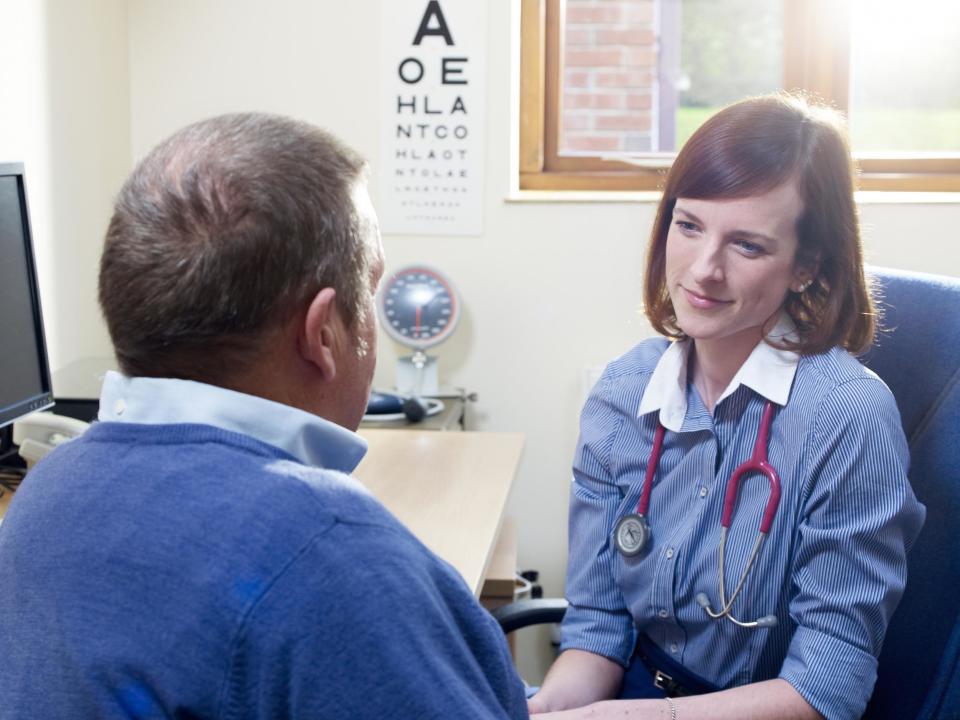Treating an issue the size of mental health shouldn’t be trial and error – but it’s going that way for GPs
If you spend any time reading or watching the news, you will not be a stranger to the great work being done to break down the stigma around mental illness. As a former GP, who regularly had to make the difficult diagnoses of mental health conditions, what we really need is help for these professionals who are for many, the first port of call.
We still don’t really know what causes many mental illnesses. There are a number of risk factors; some about the context of people’s lives, others more biological or about how people think, but one risk factor plus another does not equal being unwell.
How can it be treated? And while it may seem ambitious – how can it be prevented? I wasn’t surprised to see that recent figures from mental health research charity MQ reveal that 8 out of 10 GPs feel it’s trial and error to find a mental health treatment that works for patients.
From personal experience and with so many options, there is a definite need for more information when recommending treatments for a person with mental health problems. More research on diagnosis and treatment in general practice is needed. Symptoms are similar, so making a specific diagnosis is challenging; choosing a personalised treatment is even more complex.
There are often mixed messages on the effectiveness of treatments, meaning patients can spend months or even years waiting to receive the correct treatment that will work for them.
It’s important to consider this in the context of seeing a GP – delays can can be even longer, because visits often involve patients summoning the nerve to approach a GP in the first place. When mental health problems are thrown into the mix, feeling comfortable enough to speak to a GP is even harder. I remember one young man who struggled with mental health and alcohol misuse issues telling me he had never spoken to his GP because he felt he could not find the right words.
When mental health patients do eventually speak to a GP, a lot of people are unsure whether their condition is psychological. Many come with physical complaints of tiredness or a lack of libido, at first. It takes time to differentiate all the different symptoms.
Following a diagnosis made by a GP, there are so many barriers for effective treatment. Whenever I was required to refer a patient to psychiatric services or talking therapies, it felt like patients were left untreated for risky lengths of time, which in many cases prolonged recovery.
Although things have improved slightly, with 89 per cent stating that they are waiting less than six weeks to enter treatment, it should be noted that this is negated by the fact that from 1 April 2016 only slightly above 50 per cent of people experiencing first episode psychosis will be treated with a NICE-approved care package within two weeks of referral.
Ultimately, the wait is still long, and for many it’s difficult to get regular appointments and to take time off work, as evidenced by a recent report from Comres that highlighted that more than half (55 per cent) of British adults with a diagnosed mental health problem who sought NHS treatment waited more than four weeks to see a mental health specialist, while over a quarter (27 per cent) stated they waited more than three months.
Some people – especially shift workers and the self-employed – struggle because of the difficulty of juggling their jobs and daytime appointments. Others don’t want to tell work they have a mental health problem, usually due to the stigma associated with these sorts of illnesses – although thankfully this has reduced in recent years. This is emphasised by the 2017 National Attitudes to Mental Illness Survey which showed that there was an 11 per cent increase since 2009 in people’s willingness to work with someone with a mental health problem.
We need to focus on mental health training and educational materials for GPs and continue to improve access to psychological therapies and psychiatrists when required. Research focused on common mental disorders treated by GPs will help us understand what works, for whom and why.
As mental health awareness has grown, more and more people recognise that they may have a problem and are going to their GP looking for help, with 40 per cent of all GP appointments just being focused on mental health, alongside 66 per cent of GPs stating that the proportion of patients needing help with their mental health increased in the last six months. Many of the issues raised by MQ’s research are longstanding, with several them just as prevalent when I was a GP over 15 years ago.
It’s important we improve the situation for GP’s and patients alike. The current focus on mental health alongside some associated investment would create a real opportunity for change that right now, we can’t afford to pass up.
Ann John is a former GP

 Yahoo News
Yahoo News 

